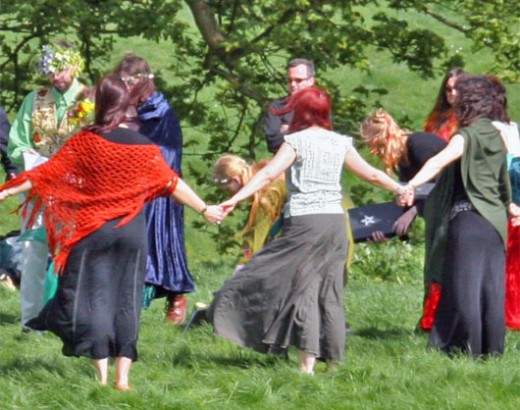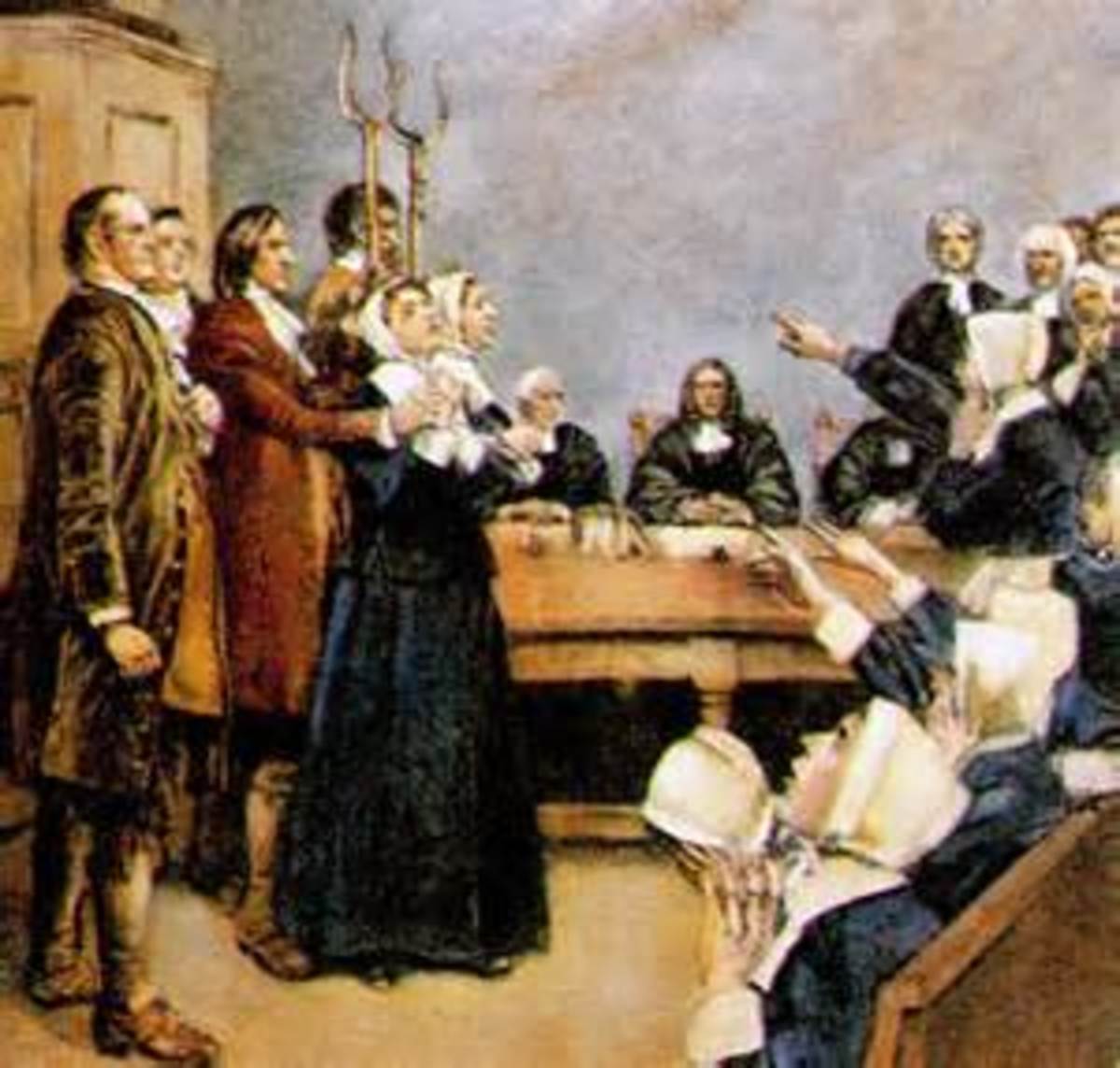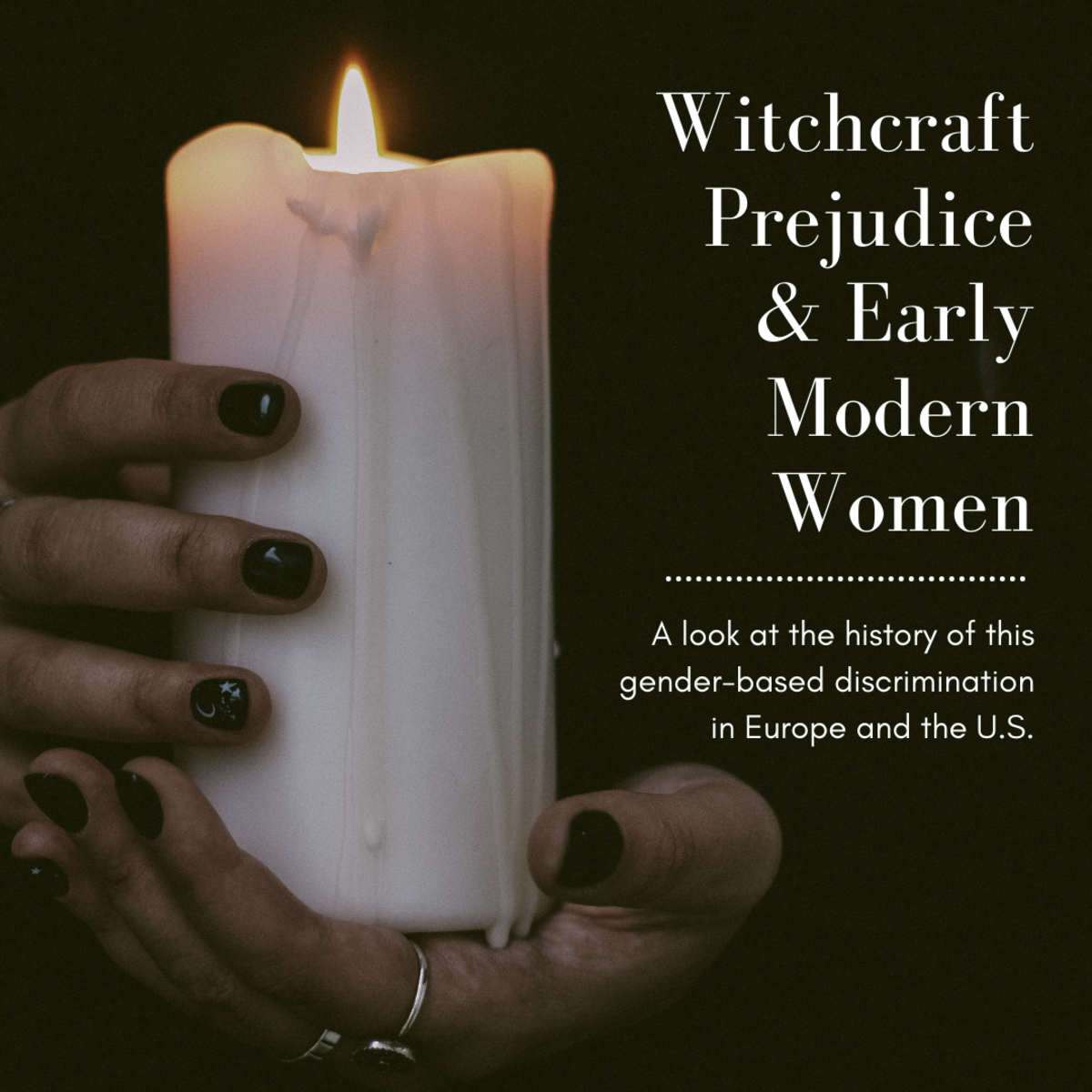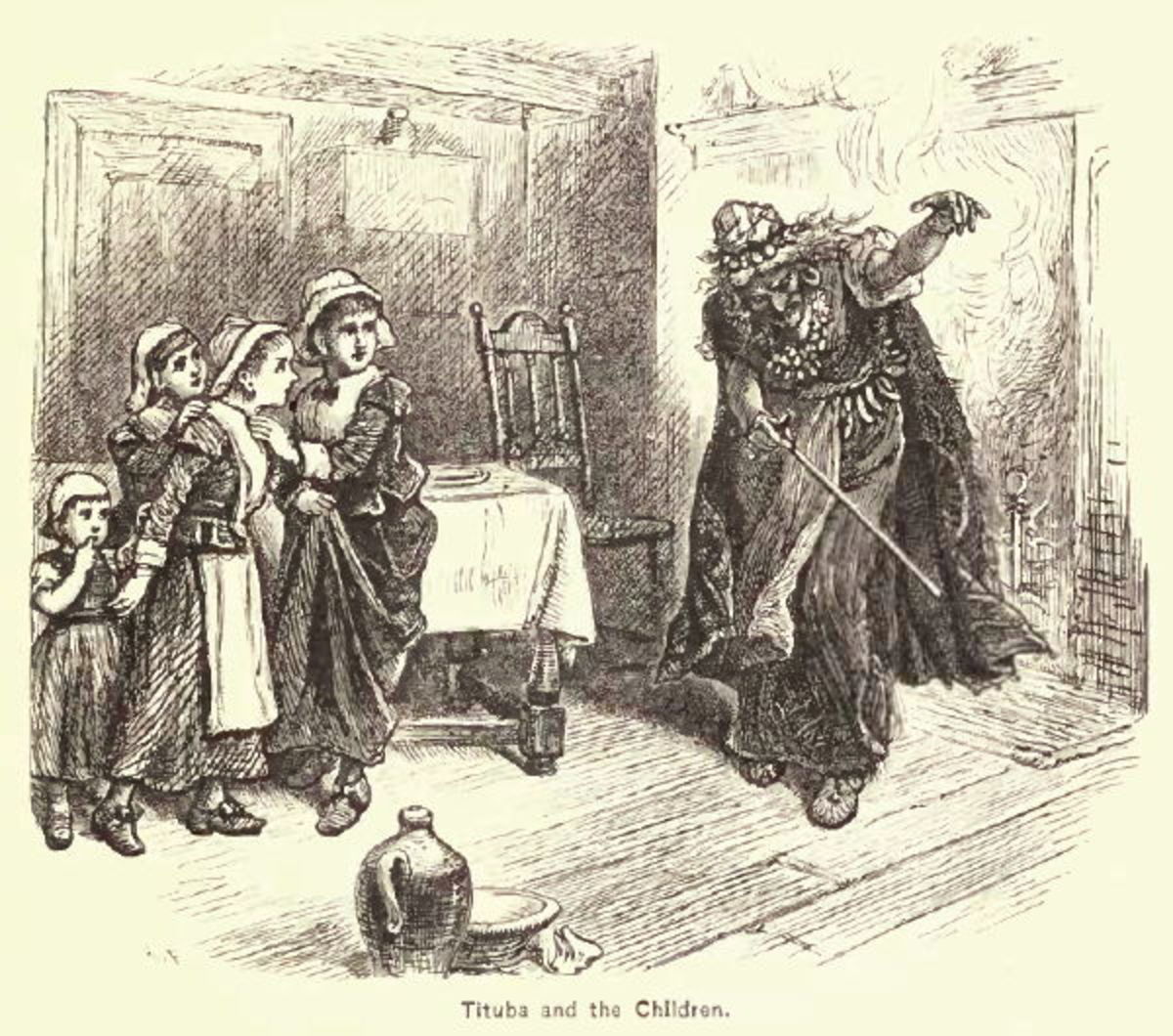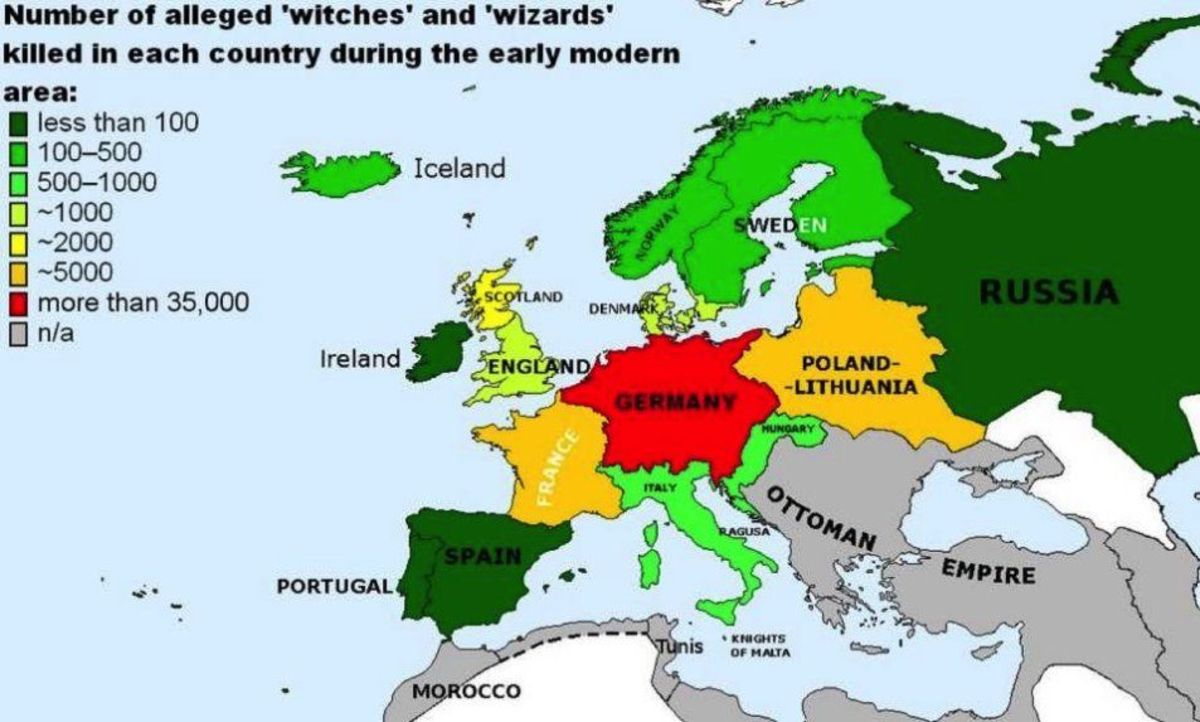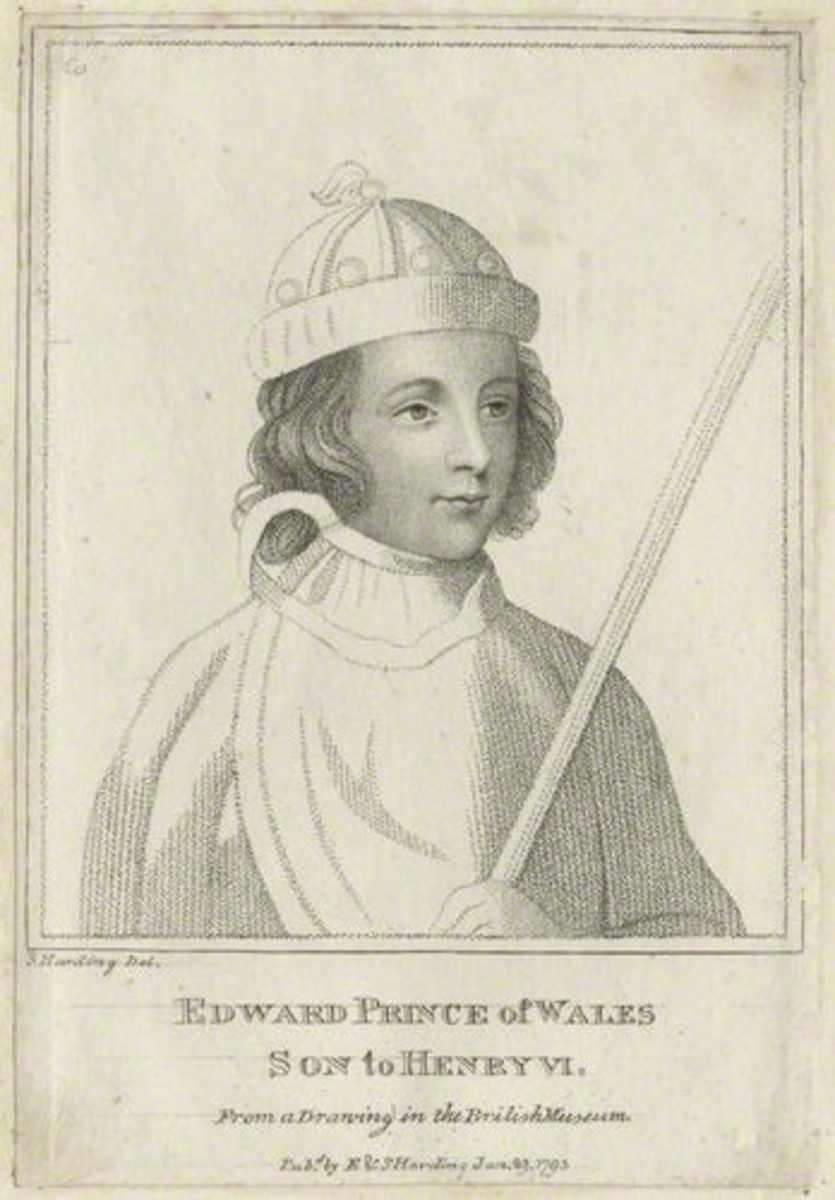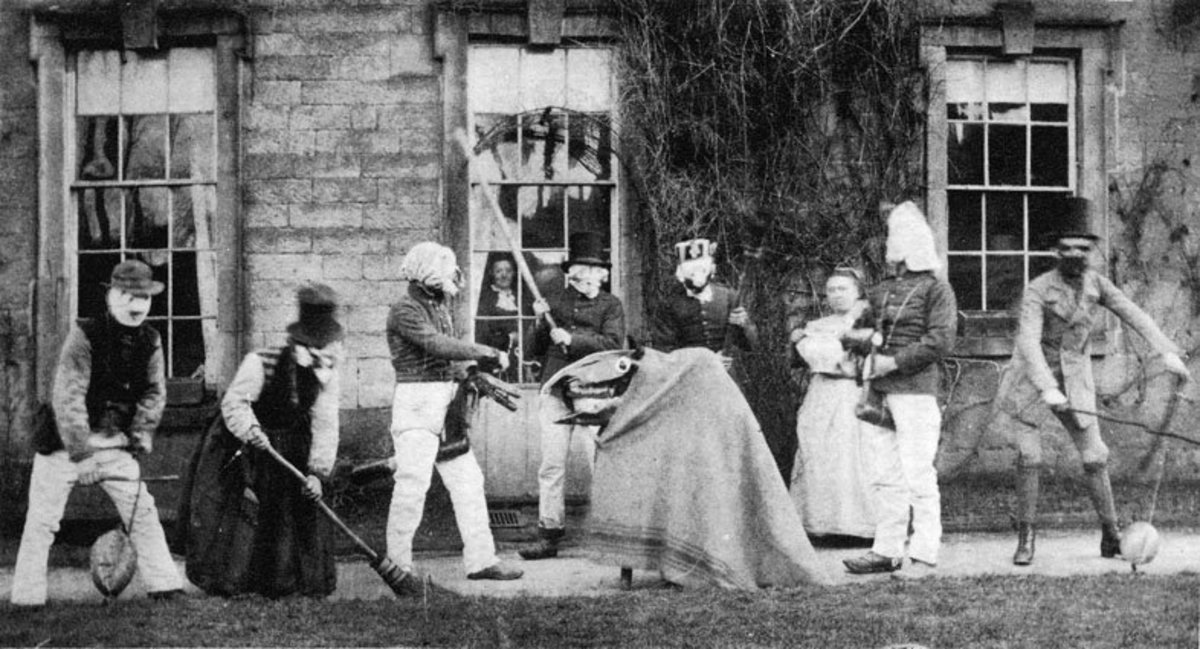Witches and Witch Hunting
A Horrible Life
Witches, it was thought in the middle ages, controlled the spirits of air, fire and water and through them had the power to change the weather, influence the fertility of man and crops and have the power to kill, through the use of spells and incantations. This magic inspired great fear in the common man but not all witchcraft was necessarily evil. There were some white or good witches whose services were highly sought after.
Witchcraft , as it was understood in the middle ages was different. Witchcraft was heresy, and was denounced as such by Pope Innocent VIII in a decree in 1484. From then until about 1750 over two hundred thousand people in Europe were accused of practising witchcraft and tortured and killed. Some modern historians argue that the witch hunts were no more than mass mania whipped up by the church and prolonged by the vested interests of the witch hunters. Others say that because of the similarities of confessions from all over Europe that there was an existence of a genuine witch cult. Although many of confessions were extracted by means of thumbscrews, red hot pokers and the rack.
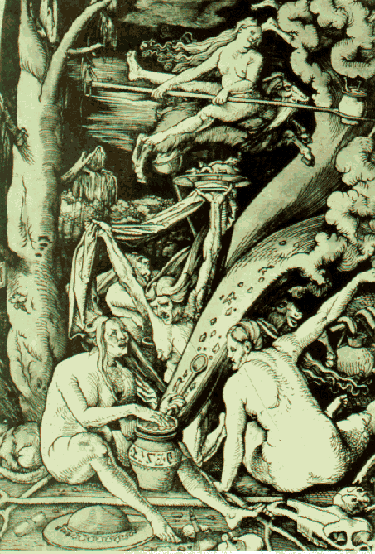
Witchcraft in Britain
Witchcraft was made a capital offence in Britain in 1563. Even then , English law required proof of injury to people or domestic animals, though in Scotland a pact with Satan was enough to incur the death penalty. Over 1000 people were hanged between 1563 and 1736 in England accused of being a witch. The staggering figure comes from Scotland where more than 4400 witches were tortured and burnt at the stake. Despite dark stories of sorcery in high places, witchcraft in Britain was a crime of the poor and most of the time a pact with Satan was to get a roof over ones head or a belly full of food. This does not mean that all witches were innocent of at least attempting the crime of which they were charged. Both the courts and the accused believed in the reality of witchcraft and many witches were convinced of their own powers.
The Making Of A Witch
Membership of a witches coven involved a ceremony in which a new member had to renounce his or her old faith, be re-baptised and re-named and finally was branded with the witch-mark, in which the devil simply nipped or scratched the convert in some part of the body. Witches were often given very imaginative names which included Throw-the-corn-yard, Pickle-nearest-the-wind and Over-the-dike-with-it. After the service it was said that witch danced around a stone cross or marker. According to many confessions, the ceremony always culminated in an orgy in which men, women and the Devil all joined in together.
The Rise Of Witch-Hunters
After 1600 the number of witch prosecutions rose dramatically in Britain and this was mainly due to Scotland'sProtestants interpretation of Exodus ' Thou shalt not suffer a witch to live'. People could be brought to trail with an anonymous accusation and it was extremely difficult to prove their innocence. The normal procedure for establishing guilt was to put the accused through the swimming ordeal, which most failed. If you are a witch you float then therefore you are hung or burnt at the stake. If you sink you are innocent but alas you drown and die anyway. Witch hunters were paid handsomely for their services so you can see why many inncoent people were accused of witch craft.
Swimming a Witch

The Belief Lingers On
Many of the Acts against witchcraft were repealed in 1736, although witch hunting still continued in some more remote areas. As late as 1878 people were still being charged for assaulting suspected witches. Belief in witchcraft has by no means died out and through the 1960 to the 1980s there was a small resurgence of people practising both black and white magic.
